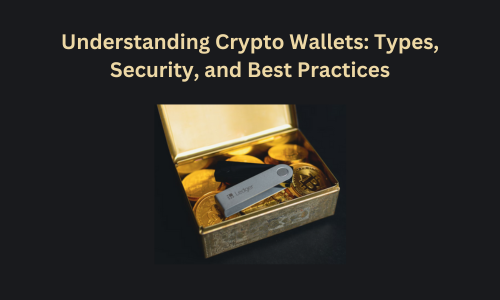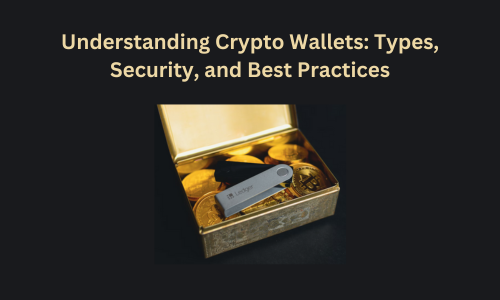


As cryptocurrency continues to gain mainstream adoption, the need for secure storage solutions becomes increasingly crucial. Crypto wallets, the digital tools that store your private and public keys, are the gateways to managing your digital assets. However, with the rising number of crypto hacks, understanding the different types of wallets and their security implications is more important than ever.
In this article, we'll explore the various types of crypto wallets, their advantages and disadvantages, and provide tips on how to maximize the security of your digital assets.
A crypto wallet is a tool that allows you to interact with the blockchain, enabling you to send, receive, and store cryptocurrencies. Unlike a traditional wallet that holds physical cash, a crypto wallet stores your private and public keys—long strings of alphanumeric characters essential for accessing your crypto assets.
Private keys are like a password that unlocks your wallet, while public keys function like an account number that others can use to send you cryptocurrency. If someone gains access to your private key, they can control your assets, making security paramount.
Crypto wallets can be broadly classified into two categories: Hot Wallets and Cold Wallets. Each type offers a different balance of convenience and security, with hybrid solutions bridging the gap.
Hot wallets are connected to the internet, providing users with easy access to their funds. While they offer high convenience, they are also more vulnerable to online attacks.
Mobile Wallets: These are apps installed on smartphones, allowing users to manage their crypto on the go. Examples include Trust Wallet and Coinbase Wallet. They are user-friendly and ideal for day-to-day transactions but can be compromised if your phone is hacked or lost.
Web Wallets: These wallets are browser-based, making them accessible from any device with internet access. MetaMask is a popular example, especially for those involved in decentralized finance (DeFi). Web wallets are convenient but can be targets for phishing attacks and malware.
Desktop Wallets: These are software applications installed on your computer, such as Electrum and Exodus. While offering more security than web wallets, they are still vulnerable to malware and keyloggers.
Pros of Hot Wallets:
Cons of Hot Wallets:
Cold wallets are offline storage solutions, providing maximum security at the expense of convenience. Since they are not connected to the internet, they are virtually immune to online hacks.
Hardware Wallets: These are physical devices like Ledger and Trezor that store your private keys offline. Hardware wallets are considered one of the safest ways to store cryptocurrencies, as they require physical access to the device to initiate transactions.
Paper Wallets: A paper wallet involves printing your private and public keys on paper, which you store securely offline. While extremely secure from online threats, they can be easily lost, damaged, or destroyed if not stored properly.
Air-gapped Devices: These are computers or devices that are permanently kept offline and only used for managing cryptocurrencies. They provide top-level security, but are complex to set up and use.
Pros of Cold Wallets:
Cons of Cold Wallets:
Hybrid wallets offer a balance between security and convenience, incorporating features from both hot and cold wallets.
Multi-signature Wallets: These wallets require multiple private keys (typically from different devices or users) to authorize transactions. Services like Casa and BitGo offer this added layer of security, making it difficult for a single point of failure to compromise your funds.
Custodial Wallets with Insurance: These wallets are managed by third parties, often with additional security measures and insurance against hacks. While they offer convenience, it's crucial to choose a reputable provider, as you are trusting them with your private keys.
As the value of your crypto assets grows, so does the importance of securing them. Here are some key security tips:
Private Key Management: Your private key is the most critical component of your wallet's security. Never share it with anyone, and avoid storing it online or in easily accessible digital files.
Backup and Recovery: Always back up your wallet and store recovery phrases (also known as seed phrases) in a safe, offline location. This allows you to recover your assets if you lose access to your wallet.
Two-Factor Authentication (2FA): Enable 2FA on your hot wallets for an added layer of security. This requires a second form of authentication, typically via an app like Google Authenticator, to access your wallet.
Risks of Centralized Custodial Wallets: While custodial wallets offer convenience, they are also centralized, meaning your funds could be at risk if the provider is hacked or goes out of business. Consider keeping only a portion of your crypto in custodial wallets.
The crypto space is constantly evolving, with new security features and wallet types emerging:
Hardware Wallet Advances: Modern hardware wallets come with features like tamper-proof designs and biometric authentication, offering enhanced protection against physical theft and unauthorized access.
DeFi Wallets: With the rise of decentralized finance, wallets like MetaMask are integrating more robust security features, such as hardware wallet support and improved user education, to safeguard users against the complexities of DeFi.
Regulatory Compliance: Increasing regulations are pushing custodial wallets to adopt stricter security measures, including insurance for digital assets and compliance with anti-money laundering (AML) laws.
When choosing a crypto wallet, consider your needs and level of technical expertise:
Assess Your Needs: If you frequently trade or make transactions, a hot wallet may be more suitable. For long-term storage of large amounts of crypto, a cold wallet is the safer choice.
Research and Reviews: Opt for wallets from reputable companies with a strong track record. Check user reviews and community feedback to gauge the reliability of the wallet.
Regular Updates: Ensure your wallet software or hardware firmware is always up to date. Regular updates often include security patches that protect against newly discovered vulnerabilities.
Choosing the right crypto wallet is a critical decision that balances convenience and security. By understanding the different types of wallets—hot, cold, and hybrid—you can make an informed choice that suits your specific needs. Remember, while convenience is important, the security of your assets should always come first. Implement best practices, stay informed about emerging threats, and regularly review your security measures to keep your cryptocurrency safe from hacks and unauthorized access.
Disclaimer: This article is provided for informational purposes only. It is not offered or intended to be used as legal, tax, investment, financial, or other advice.
